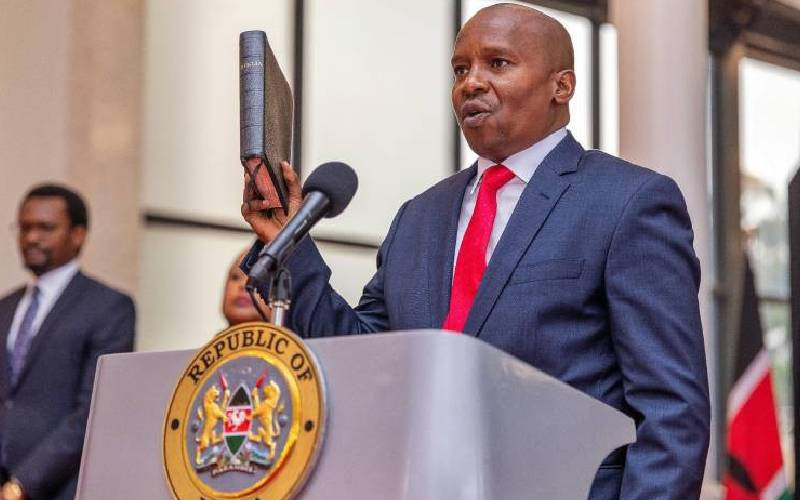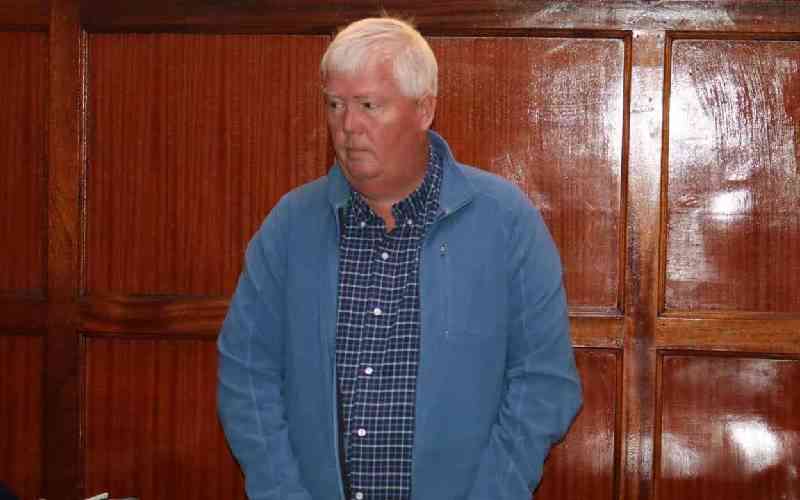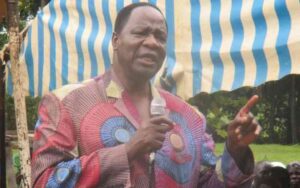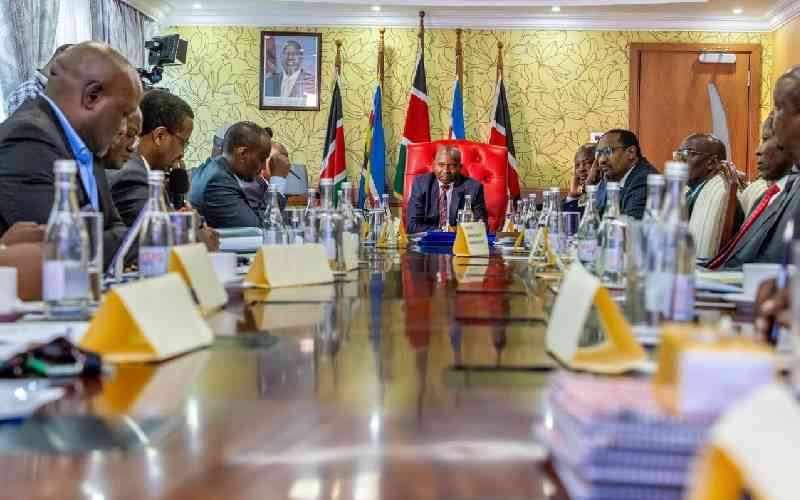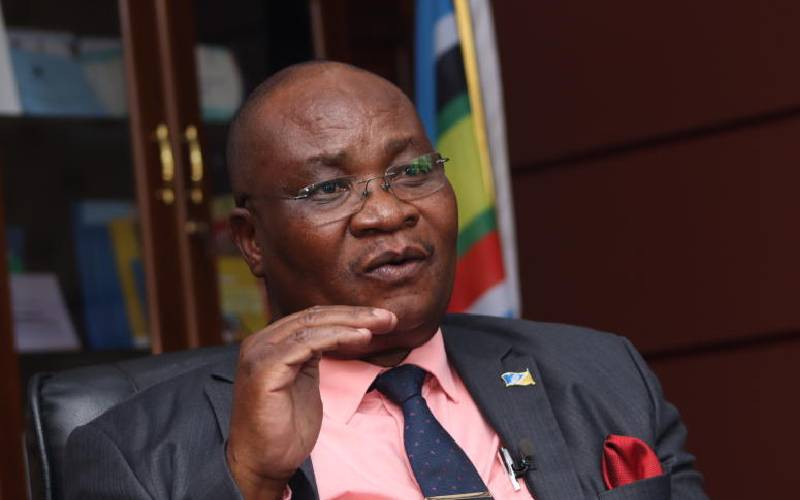The spotlight has once again swung onto city lawyer Guy Spencer Elms, over explosive claims that he forged the Will of yet another wealthy businessman in a bid to secure a prime 53-acre beachfront estate in Msambweni, Kwale.
The Directorate of Criminal Investigations (DCI) has opened a probe into the matter, setting the stage for what promises to be a bruising legal battle involving one of Nairobi’s most controversial advocates.
Confidential reports from the DCI’s forensic unit and filed in court, seen by The Standard, allege that Spencer Elms and businessman Nileshkumar Shah, who are named in the contentious Will as joint executors of the estate of the late billionaire Pritam Singh Panesar, presented a contested will carrying signatures said to be inconsistent with Panesar’s known hand. This document investigators claim was intended to facilitate the transfer of the land to their control.
Billionaire Pritam Singh Panesar died in July 2018 leaving behind vast estates stretching from Nairobi to the Coast, a fortune that has been at the centre of legal battles on inheritance.
In the contested Will, DCI forensic document examiner Alex Mwongera compared the signature on the will against that on Pritam Singh Panesar’s national identity card, and concluded the two did not match.
“In my opinion the signatures are dissimilar and distinguishable, hence not made by the same author.”
“… this is based on pen movement, character design and formation, pen lifts, pen speed, initial and terminal strokes, and the general resemblance,” observes Mwongera.
A similar conclusion is shared by an independent forensic examiner, Emmanuel Karisa Kenga, who examined Panesar’s signatures in at least nine known documents in court against the purported will, concluding there was a “glaring mismatch.”
The fresh scrutiny comes barely weeks after the Office of the Director of Public Prosecutions abruptly sought to terminate a separate, decade-long criminal case in which Spencer Elms had been accused of forging the will of deceased British tycoon Roger Bryan Robson to acquire his prime property in Karen, then valued at more than Sh100 million.
Spencer Elms was linked to the alleged forgery of documents in a scheme said to have fraudulently targeted the land on a claim that the deceased had intended proceeds from the estate to go to charitable causes.
The Standard has also unearthed an affidavit by one Henry Philip Nyabuto, in which he admits to fraudulently preparing a fake Green Card, the official land register at the Lands Registry, in a bid to aid the illegal acquisition of the disputed Kwale property.
In the affidavit, Nyabuto names one Wilson Gichuhi, believed to be an ex-police officer who approached him allegedly on request by Spencer Elms, who would facilitate the process. Nyabuto annexed an M-Pesa statement indicating receiving Sh10,000 on 21 January 2022 from a mobile number associated with Gichuhi.
The genesis of the Kwale land controversy traces back to April 2022 when the Environment and Land Court in Kwale handed ownership of the 53-acre parcel to three occupants on grounds that they had acquired rights through adverse possession.
Justice A.E. Dena declared that Mohammed Ruwa Maridadi, Anthony Michael Mwanza Mulwa, and Ahmed Ouma Randa had satisfied the legal requirements to be registered as proprietors of Kwale/Msambweni “A” 3390, land registered in the name of businessman Pritam Singh Panesar.
Stay informed. Subscribe to our newsletter
The three had moved to court in May 2021, seeking recognition under Sections 37 and 38 of the Limitation of Actions Act. They argued that they had lived on the land for decades, withstanding over 12 years of uninterrupted occupation, and asked that the title be transferred into their names.
To verify the claim, the judge directed the Kwale District Land Surveyor to inspect the property. In a report dated February 7, 2022, the surveyor confirmed the existence of three houses, two boreholes, and mature trees on the land, all evidence of established residence.
The court directed the Kwale Land Registrar to register the property in the names of the three plaintiffs as proprietors in common.
Adverse possession is a 12-year rule anchored in Section 7 of the Limitation of Actions Act (Cap 22, Laws of Kenya). It provides that a person who has occupied private land openly, continuously, and without the owner’s consent for at least 12 years may apply to be registered as the new owner.
But just when the three men were in the process of taking ownership, Elms and Shah moved to court seeking to set aside the 2022 decision on grounds that they were the duly appointed executors and trustees of the estate, yet they were never joined in the original case.
The Standard’s investigations team travelled to the coastal strip of Munje, Msambweni, for a fact finding mission to trace the contentious beachfront land at the centre of a bitter ownership row.
Nestled along the Indian Ocean, Munje is a quiet seaside village, its shoreline lined with an empty yet strikingly pristine beach.
Our informer guides us through a rusty gate and inside the compound, the land sprawls wide much of it cloaked in dense thicket.
Locals later tell us that in the years since the stalemate began, opportunistic herders and squatters have slipped in, using the vast land for grazing and makeshift shelters.
In overturning the earlier decision, Justice Dena acknowledged the executors’ valid grant of probate and confirmed they qualified as legal representatives under the Civil Procedure Act. The court further noted that the suit was filed in 2021 against a person who had died three years earlier, meaning there was no competent defendant before the court. With the judgment now set aside, the controversies surrounding the ownership of the prime parcel of land persist, essentially reverting the land dispute to square one and reopening arguments on the validity of the will and the claim of adverse possession.


